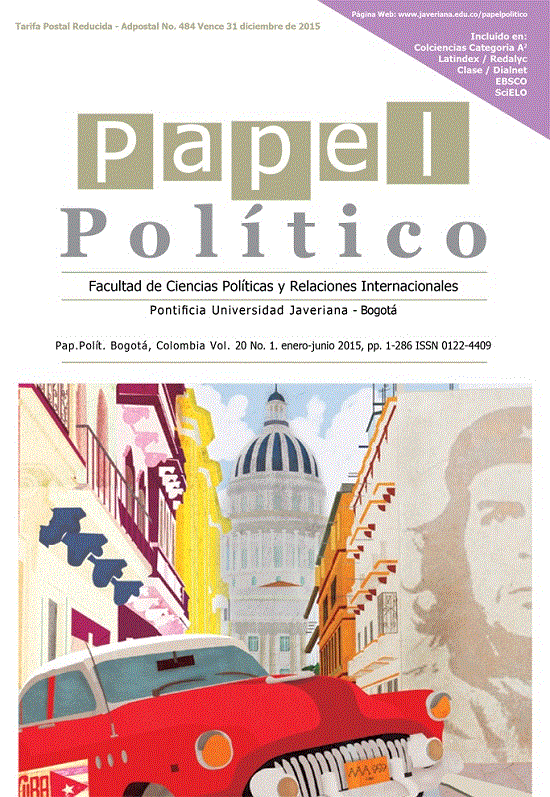Abstract
The most recent data places Colombia as a highlycorrupt country. Despite being a characteristic ofColombian society –and a very expensive one–,corruption has been a very little studied phenomenon.In order to contribute to the scholarshipin this field, this article describes and analyzesthe perceptions of corruption that inhabitantsof the Colombian Coffee Region have. Througha quantitative design, this article measures andtests different typologies of corruption thatscholars have suggested in the literature. Theanalysis of the collected data problematizes someof these typologies and, specifically, shows that corruption is a difficult phenomenon that resistsa-priori definitions as it is strongly influenced bythe individuals, perception about it. In addition,this data shows a strong relationship betweenperception of corruption and education.This journal is registered under a Creative Commons Attribution 4.0 International Public License. Thus, this work may be reproduced, distributed, and publicly shared in digital format, as long as the names of the authors and Pontificia Universidad Javeriana are acknowledged. Others are allowed to quote, adapt, transform, auto-archive, republish, and create based on this material, for any purpose (even commercial ones), provided the authorship is duly acknowledged, a link to the original work is provided, and it is specified if changes have been made. Pontificia Universidad Javeriana does not hold the rights of published works and the authors are solely responsible for the contents of their works; they keep the moral, intellectual, privacy, and publicity rights.
Approving the intervention of the work (review, copy-editing, translation, layout) and the following outreach, are granted through an use license and not through an assignment of rights. This means the journal and Pontificia Universidad Javeriana cannot be held responsible for any ethical malpractice by the authors. As a consequence of the protection granted by the use license, the journal is not required to publish recantations or modify information already published, unless the errata stems from the editorial management process. Publishing contents in this journal does not generate royalties for contributors.


